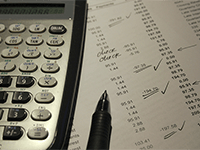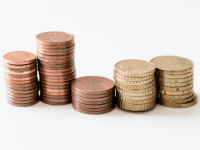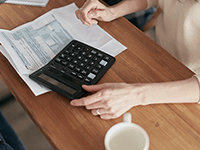
If you have multiple debts from various credit cards, you might be looking for ways to better manage them. Consolidating these debts into one payment might be an option you're considering.
In this blog, we will explain what credit card consolidation is and how you can do it.
What is credit card consolidation?
Essentially, it means getting a new loan to pay off all your debts. By doing this, it merges your debts into one payment. This can simplify your finances, as you'll only need to manage one payment instead of several.
Some people find that combining their debts makes it easier to stay on top of payments and helps them avoid missing any. However, taking out another loan might extend the debt’s term and cost you more due to added interest. Before deciding, think about the pros and cons to make sure it's the right move for you.
Can I get a loan to pay off my credit card debt?
Yes, you may be able to get a loan to pay off credit card debt. This is known as a debt consolidation loan. Eligibility varies based on the loan type and the lender's criteria.
Each lender has specific requirements you must meet to qualify, so it's important to review these before applying to make sure you have a good chance of approval.
How to consolidate credit card debt
Consolidating credit card debt can be achieved in various ways, depending on your preferences.
One method is to get extra funds from your current mortgage lender, known as a further advance. This can be a quick option since you already have a mortgage with them. However, if you can’t repay the loan, you could lose your home. Also, not all lenders allow extra borrowing for debt consolidation, so it might be hard to get approved depending on your provider.
Another option is to remortgage to pay off your credit card debt. This means switching to a different mortgage, which can let you release the equity in your property to pay off the debts. However, this means giving up your current mortgage deal. So, if you have a good rate or would have to pay high early repayment charges for ending your mortgage early, you might be hesitant to use this option.
Alternatively, you could get an unsecured loan or personal loan. With this option, you can borrow a fixed amount without needing to offer any collateral. These loans are good for smaller amounts, usually between £3,000 and £20,000. However, without collateral, approval may be harder if you have poor credit.
Lastly, you could apply for a secured loan, which uses your home as collateral. This option can allow you to borrow more money over a longer period because lenders feel more secure knowing they can take your home if you don't repay. It can also be easier to get approved if your situation is complicated. Usually, this solution is considered when other options aren't available.
Should I consolidate my credit card debt?
Ultimately, the decision is yours to make. You understand your financial situation best, so take your time weighing up your options. Make sure you consider the potential extra costs involved, like lender and broker fees, and assess whether it would truly benefit your finances.
If you're not sure what to do, getting help from a debt advice charity or a financial advisor is a good place to start.
Where to get help for credit card debt
If you're struggling with credit card debt, there are several resources available to assist you:
- Contact your current lenders or creditors: Reach out to your lenders or creditors directly. They may offer support and provide an alternative repayment plan that's easier to manage, helping you avoid taking out additional loans and incurring more interest.
- Debt advice charities: You can also get in touch with debt advice charities, which can help facilitate discussions with your creditors and offer valuable guidance.
- Free support services: For extra support, consider reaching out to organisations like MoneyHelper or the Citizens Advice Bureau. They offer free advice and can help you understand your options.
How to avoid future credit card debt
Preventing future debt is essential. Here are some tips to help you stay on track:
- Identify the cause of your debt: Understanding the root cause of your debt is crucial. Analyse your spending habits and identify what led to your debt. This will help you recognise patterns and develop strategies to prevent it from happening in the future.
- Create and stick to a budget: Establish a clear budget and stick to it strictly. Set specific budget goals for various aspects of your life and make sure you do not exceed these. A well-defined budget can help you avoid falling back into debt.
- Limit the number of credit cards: If credit cards have contributed to your debt, consider limiting the number you own. Only keep essential cards and make sure you never spend more than you can afford to repay.
- Make payments on time: Missing credit card or loan payments can result in high interest rates or extra fees. Make it a priority to pay off your credit card and loan balances on time to avoid falling behind.
Find out more tips in our blog top strategies on how to avoid future debt.
Are there any other debt repayment strategies?
Yes, several strategies exist to help you tackle your credit card debt:
- Debt avalanche method – This strategy prioritises paying off debts with the highest interest rates first, aiming to reduce the overall interest costs over time.
- Debt snowball method – Using this method, you start by paying off debts with the smallest balances, which can help you make faster progress.
Summary
Managing multiple credit card debts can be hard, so combining them into one payment may help you. There are various methods available to help you achieve this. Remember to carefully weigh the pros and cons of each option to determine the best fit for your situation. Additionally, seeking help from lenders, debt advice charities, and free support services like MoneyHelper or the Citizens Advice Bureau can be useful. By taking these steps and using available resources, you can effectively manage your debt.
Loans are secured against property. Think carefully before securing other debts against your home. Your home may be repossessed if you do not keep up repayments on a mortgage or any other debt secured on it.




